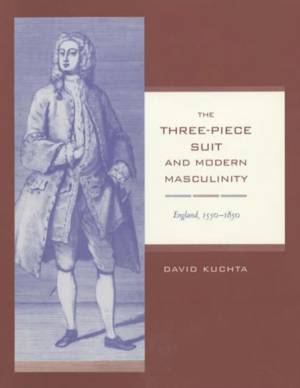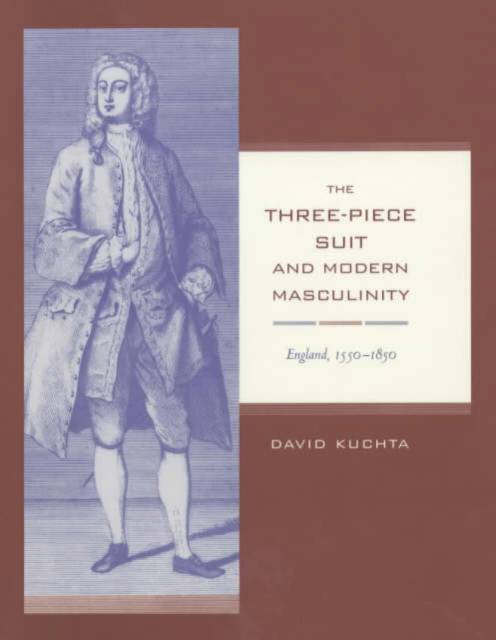
Bedankt voor het vertrouwen het afgelopen jaar! Om jou te bedanken bieden we GRATIS verzending (in België) aan op alles gedurende de hele maand januari.
- Afhalen na 1 uur in een winkel met voorraad
- In januari gratis thuislevering in België
- Ruim aanbod met 7 miljoen producten
Bedankt voor het vertrouwen het afgelopen jaar! Om jou te bedanken bieden we GRATIS verzending (in België) aan op alles gedurende de hele maand januari.
- Afhalen na 1 uur in een winkel met voorraad
- In januari gratis thuislevering in België
- Ruim aanbod met 7 miljoen producten
Zoeken
€ 106,95
+ 213 punten
Omschrijving
In 1666, King Charles II felt it necessary to reform Englishmen's dress by introducing a fashion that developed into the three-piece suit. We learn what inspired this royal revolution in masculine attire--and the reasons for its remarkable longevity--in David Kuchta's engaging and handsomely illustrated account. Between 1550 and 1850, Kuchta says, English upper- and middle-class men understood their authority to be based in part upon the display of masculine character: how they presented themselves in public and demonstrated their masculinity helped define their political legitimacy, moral authority, and economic utility. Much has been written about the ways political culture, religion, and economic theory helped shape ideals and practices of masculinity. Kuchta allows us to see the process working in reverse, in that masculine manners and habits of consumption in a patriarchal society contributed actively to people's understanding of what held England together.
Kuchta shows not only how the ideology of modern English masculinity was a self-consciously political and public creation but also how such explicitly political decisions and values became internalized, personalized, and naturalized into everyday manners and habits.
Kuchta shows not only how the ideology of modern English masculinity was a self-consciously political and public creation but also how such explicitly political decisions and values became internalized, personalized, and naturalized into everyday manners and habits.
Specificaties
Betrokkenen
- Auteur(s):
- Uitgeverij:
Inhoud
- Aantal bladzijden:
- 313
- Taal:
- Engels
- Reeks:
- Reeksnummer:
- nr. 47
Eigenschappen
- Productcode (EAN):
- 9780520214934
- Verschijningsdatum:
- 21/05/2002
- Uitvoering:
- Hardcover
- Formaat:
- Genaaid
- Afmetingen:
- 161 mm x 237 mm
- Gewicht:
- 639 g

Alleen bij Standaard Boekhandel
+ 213 punten op je klantenkaart van Standaard Boekhandel
Beoordelingen
We publiceren alleen reviews die voldoen aan de voorwaarden voor reviews. Bekijk onze voorwaarden voor reviews.









